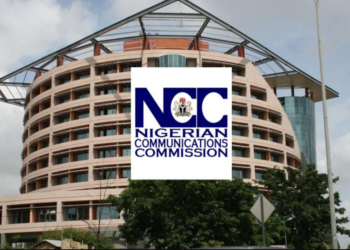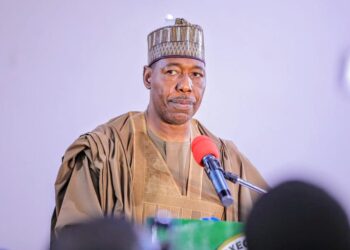The exchange rate between the naira and dollar closed at N665/$1 on the black market in a week (ending July 23rd) marred with huge volatility.
The exchange rate at the start of the week was N618/$1 but quickly deteriorated as demand surged amid limited supplies. But while forex depreciated on the black market the official NAFEX market remained in the wilderness of N430/$1.
On the cryptocurrency peer-to-peer exchange (P2P) market, the exchange rate traded on N654/$1 a depreciation from about N623/$1 a week ago.
The crash recorded during the week has been blamed mostly on a fragmented market that has enabled a disproportionate pricing regime on the black market.
On why there are different rates in the foreign exchange market by the dealers, the President of the Association of Bureau De Change Operators (ABCON), Aminu Gwadebe, who questioned some of the rates being quoted in the market said the rates are
‘’Because the market is a disorganized market as well as the demand too. So what I am telling you is that uncertainty is the cause. It also depends on the market you are taking from. For instance, if you are buying from Abuja, Abuja is not as competitive as Lagos in terms of pricing.”
He also explained the reasons for the difference between the rates in different cities, especially between Abuja and Lagos.
“Most of the time they buy low and sell high. You know environment goes a long way to determine whatever activity is going on there, but we in Lagos, we buy high and sell high, and over there (in Abuja) they buy low and sell high.”
‘’The liquidity here (Lagos) is fine, the demand here is moderately business driven because you have importers and so on. Also if you call in from Abuja, I will give you politician rate and their rates are higher.’’
Other operators we spoke to declared they are bracing up for another volatile week as they do not know what to expect when the market opens on Monday. As one operator, Buzu, chimed in, “we are waiting for them to tell us the price for the morning. There is no dollar anywhere so we do not know what will happen to the price when the market opens in the morning.”
Another operator explained that “they are selling high now” cautioning against believing any price on a weekend after a volatile week.
Naira depreciates by N120/$1 a year after banning sale to BDCs
Meanwhile, it will be a year this week since the central bank banned the sale of forex to BDC operators. The apex bank had a year ago banned the sale of forex to BDC operators citing the illegal sale of forex above the market they were licensed to serve.
- According to the Governor, “in particular, we have noted with disappointment and great concern that our Bureau De Change operators have abandoned the origin objective for their establishment, which was to serve retail end users who need $5,000 or less. Instead, they have become wholesale dealers, illegally in foreign exchange to the tune of millions of dollars per transaction.”
- “Despite the fact, that Nigeria is the only country in the world today where a central bank sells dollars directly to the Bureau De Change operators in the Nigeria Bureaus De Change segment have not reciprocated the bank’s gesture to help maintain price stability in that market,” he continued.
At the time the CBN Governor banned the sale of forex to BDC, the exchange rate was going for about N501/$1 and we had just $33 billion in reserves. Currently, the exchange rate at the parallel market ranges between N640-650/$1 depending on who is selling while foreign reserves hold over $39 billion.
In an ironic twist of events, the exchange rate is worse off since then giving credence to critics of the government who blame the current situation on the central bank’s ban.
Will the CBN increase liquidity again this week?
The official exchange rate fell sharply at the Investors and Exporters window in the week ended July 15th, 2022, to N430.33/$1 largely due to the decline in the amount of forex traded.
- A major reason for this was the drop in liquidity as just $211.98 million exchanged hands during the week. Important to note that there was a two-day holiday that week as well.
- To reverse this trend, the apex bank pumped more forex into the market in the subsequent week, as $840.5 million exchanged hands in the week ended 22nd July 2022, representing an average of $168.1 million per day.
- Following the increased supply of forex at the I&E window, the exchanged rate appreciated to N424.17/$1 after a sum of $383.59 million was traded in a single day.
External Reserve falls
Meanwhile, the increased liquidity in the official market came at the expense of the country’s external reserve.
- A look at the data from the CBN shows that Nigeria’s external reserve which had been on an upward trajectory since the early part of June declined for three consecutive days during the week.
- This perhaps explains why the exchange rate was short-lived as it fell to N430/$ on Friday, 22nd July 2022, after only $36.47 million could be traded in the market.
- This also suggests a high demand for forex amidst continuous scarcity.




















Emiefele policy sometimes I wonder how he thinks them out,no policy has help naira appreciate but rather devalue it the more? Which course eh even read,cos more inflation he causes in a bid to help naira appreciate,he devalue it
It’s obvious CBN has a role in the collapse of Naira and they need to fix things on time All policies to stifle the system have not brought positive results also.